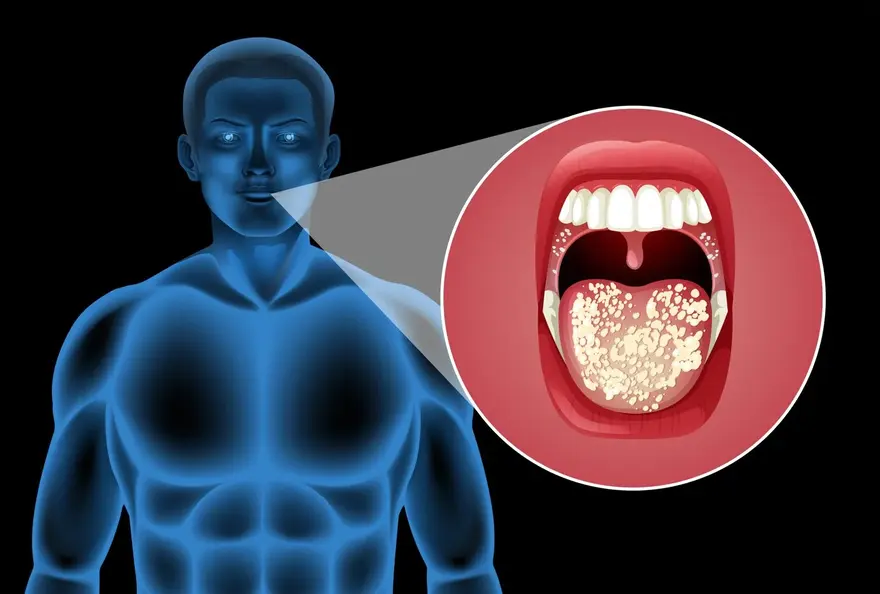Preventive Healthcare
Understanding the SGPT Test: Uses, Results, and Normal Range
640856 Views
0

What is SGPT Test?
Serum Glutamic Pyruvic Transaminase, often known as SGPT, is a test that gauges the condition of your liver. The SGPT test analyses the blood level of SGPT, a liver enzyme. Glutamate Pyruvate Transaminase, also known as GPT, is measured using SGPT in your blood serum. The GPT enzyme can be found in the kidneys, cardiac cells, muscles, and definitely in the liver. ALT, or Alanine Aminotransferase, is another name for SGPT.
Aspartate transaminase (AST) and ALT share characteristics as both enzymes are linked to liver parenchymal cells. Although it can be found in plasma and other human tissues, ALT is most frequently identified in the liver. The two steps of the alanine cycle are catalysed by it. As indicators for liver health, serum ALT, AST (aspartate transaminase), and their ratio (AST/ALT ratio) are frequently assessed clinically. ALT aids in transforming food into energy. ALT levels are low in healthy individuals, but they rise in the blood when the liver is injured. An SGPT blood test is performed to check for liver damage under various settings.
What are the SGPT test uses?
An SGPT test for liver disease, particularly, detects cirrhosis and viral or alcohol- or drug-induced hepatitis. An SGPT blood test also identifies liver damage and investigates whether a blood condition or liver disease is to blame for the jaundice.
The test tracks the results of numerous medications, including some that potentially harm the liver and lower cholesterol. For people who have a higher risk of developing liver disease, an SGPT test may be requested alone or in conjunction with other tests. Some examples include:
- Those who have a history of known or potential hepatitis virus exposure.
- People who drink excessively.
- People whose families have a history of liver illness.
- Those who occasionally use medicines that can harm their livers.
- Individuals with diabetes and obesity.
What is the normal range of SGPT/ALT?
The SGPT normal level can differ from lab to lab. For an SGPT blood test, a reference range is 13 to 69 U/L (units per litre). ALT values are typically greater in males.
It's vital to examine your test result report to discover what your specific lab's reference range is and let your healthcare professional interpret the results.
How to understand the test results of the SGPT test?
Your SGPT test results are either normal or abnormal. Read what these terms sands for:
Normal Report
The SGPT normal value will reveal the level of SGPT in your blood. The blood's ALT levels should be between 7 to 55 units per litre, while the exact range may differ depending on the laboratory. Age and gender are just two of the variables that may have an impact on this range. It's crucial to discuss your results with the doctor.
Abnormal Report
Levels that are higher than the SGPT normal level may be a sign of liver disease. Increased ALT levels could come from:
- Hepatitis, a liver ailment that causes inflammation
- Cirrhosis, which results in significant liver scarring
- Liver tissue degeneration
- An abnormal growth or liver cancer
- Insufficient blood supply to the liver
- Hemochromatosis, a condition that results in the accumulation of iron in your body.
- Mononucleosis, an illness typically brought on by the Epstein-Barr virus
- Pancreatitis, a pancreatic inflammatory disease
Why do I need the SGPT test?
Your healthcare provider may request the SGPT blood test to check for liver damage brought on by medications, illnesses, or injuries such as:
- Liver damage, bile duct disorders, and viral hepatitis
- Diabetes
- Enlarged heart failure
- Medicines, including zileuton, omega-3 acid ethyl esters, aspirin, antibiotics, cholesterol-lowering meds, some antipsychotics like risperidone, and anticonvulsants, among others.
- Contagious mononucleosis
- Reye Syndrome
An SGPT test is also carried out to evaluate how well liver disease treatments are working. SGPT test treatment is also performed as a standard test as part of a health examination.
What happens during the test for checking the range of SGPT?
Following are the things you could expect going through during a blood test or blood draw for an SGPT blood test:
- A medical professional will have you sit down comfortably while they look for a vein in your arms.
- Once they have found a vein, they will use an alcohol swab to clean and sanitise the region.
- Then, they will put a tiny needle into your vein to take a sample of your blood. There may be a slight pinching sensation.
- Once the needle has been placed, the necessary volume of blood will gather in a test tube.
- Once they have enough blood for testing, doctors will withdraw the needle and apply gauze or a cotton ball to the wound to stop any bleeding.
- After applying a bandage to the site of pricking, the blood collection is complete.
- The process hardly takes five minutes.
What is the alarming level of SGPT?
The range for normal SGPT levels in serum is typically 7–56 units/litre. However, if the patient's blood test results for SGPT are greater than 56 units/litre, then it is good to book a consultation with a doctor.
Having elevated SGPT levels is normal. There are numerous potential causes for it. Make sure you get in touch with the doctor and follow their instructions.
What does SGPT mean in lab results?
The results of an SGPT blood test and other blood tests typically provide the following information:
- The name of the blood test or the results of the blood analysis.
- Your blood test result's value or metric.
- The typical results for those measurements.
- The details that show if your results are high or low, normal, or abnormal.
When is the SGPT test recommended?
Doctors may suggest an SGPT test when a patient shows one or more symptoms of a liver problem. Some of the SGPT test symptoms are listed below:
- Stomach discomfort or swelling, vomiting, or nausea.
- Jaundice.
- Weakness and extreme exhaustion.
- The colour of the urine turns dark yellow.
- Itchiness in the skin.
What are the risks of the SGPT test?
An SGPT test is a simple blood test done to assess the condition of the liver by determining the levels of SGPT in it. Sometimes, you can get a bruise or a red spot from where the blood is drawn. Applying pressure at that place for a few minutes after the needle is removed can lessen the likelihood of getting severe bruises.
The following issues can very rarely develop throughout or following an SGPT blood test:
- Excessive bleeding where the needle was inserted.
- Hematomas, or a buildup of blood under your skin.
- Fainting or feeling dizzy when you see blood.
- Infection or bruising at the pricking site.
What is the normal range of SGPT/ALT in males and females?
An SGPT normal value varies by gender- 19 to 25 U/L for women and 29 to 33 U/L (units per litre) for men.
The range of normal SGPT concentrations is 7 to 55 U/L. Even though this range can be affected by various factors, including age and gender, only doctors should be able to spot aberrant levels.
SGPT levels that are too high or low are both deemed unhealthy, but elevated levels are more likely to signify liver damage.
Is SGPT 42 normal?
Yes, the range of SGPT levels considered normal is approximately 7–56 units/litre of serum (the liquid component of blood). Anything beyond this range may be considered abnormal. However, there are many reasons why your SGPT level rises. It is better to get professional advice after you get your lab results.
What happens when SGPT is high?
Illnesses and disorders can cause increased SGPT levels.
- Chronic hepatitis A, B, and C: Types A and B of hepatitis are present. The term "hepatitis" refers to viral infections that cause the liver to enlarge and inflame.
- Celiac Disease: Small intestine oedema and inflammation are symptoms of celiac disease. Grain products contain gluten, a gooey protein.
- Diabetes: An insulin-hormonal imbalance causes diabetes. The amount of sugar in the blood rises.
- Obesity: A high intake of fatty foods impairs the liver's ability to operate. Obese individuals have higher SGPT levels.
- Epstein-Barr virus: This STD can cause a rise in SGPT because of the immune system's response and the viral infection's reaction.
- Cholecystitis: It is the medical term for inflammation of the gallbladder. The gallbladder releases bile juice. This bile juice aids the digestion of lipids.
How to control SGPT?
The following actions should be considered to spot a rise in SGOT and SGPT.
- Eat more Veggies: Vegetables and fruits should be consumed since they are high in antioxidants, as we all know. Kiwi, bell pepper, carrot, papaya, pomegranate, and spinach intake keeps the liver in good condition.
- Add Vitamin D to Your Diet: Vitamin D is present in soy milk, oranges, mushrooms, apples, and fortified eggs. Vitamin D lowers SGPT levels and avoids liver damage.
- Avoid Eating Junk Food: Burgers, chips, noodles, and deep-fried fritters should all be consumed in moderation or not at all. In addition to these, butter, cheese, and carbonated beverages also lower SGPT levels.
- Follow a Vegetarian Diet: It's advisable to avoid eating too much bacon, pork, or chicken pork and to follow a vegetarian diet.
Trust only the medical professionals to know how to reduce SGPT quickly.
Conclusion
The SGPT test may be a requirement for your overall health assessment. It would help if you went by the suggestions of your healthcare professional. The cost of SGPT testing varies among diagnostic labs. To get your SGPT test done visit the Metropolis Lab or book a home test. We have outlets in many cities across India which enables you to get reliable services within your reach as and when required.























 WhatsApp
WhatsApp